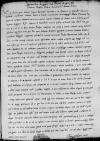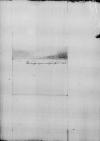List #2734
Sigismund I Jagiellon do Jan SOKOŁOWSKI, Ioannes DANTISCUS, Johann von BAYSEN (BAŻYŃSKI) & Paweł PŁOTOWSKIBielsk Podlaski, 1544-06-13
Rękopiśmienne podstawy źródłowe:
Pomocnicze podstawy źródłowe:
| ||||||
Tekst + aparat krytyczny + komentarz Zwykły tekst Tekst + komentarz Tekst + aparat krytyczny
Reverendo in Christo Patri, domino
Reverende, generosi et venerabilis sincere fideles ac devote nobis dilecti.
Non ignorant Paternitas, Fraternitates et Dominatio Vestrae bona nostra
Quo magis autem constare possit, quo iure vel Gedanenses possideant, vel nos ea nobis vindicemus, Paternitati, Fraternitatibus et Dominationi Vestris committendum duximus ita, ut committimus praesentibus, ut iura et privilegia
Si vero residuum est adhuc aliquid pecuniae, quod nondum perceperint, id eis de fisco nostro
Quod si dubtiatio de aliquarum(?) litterarum clausula inciderit, quam secus interpretari velint, quemadmodum ipsae Paternitas, Fraternitates et Dominatio Vestrae intelligant, nobis perscribant ac de eo ad nos referant, ut nos statuere possimus ac decernere, quomodo ea intelligi debeat. Haec autem omnia intra mensis unius spatium in eum, quem praescripsimus modum, a Paternitate, Fraternitatibus et Dominatione Vestris confici volumus.
Quae pro gratia nostra aliter non faciant.
Dat(ae) or Dat(um)⌈Dat(ae)Dat(ae) or Dat(um)⌉
in
Ex commissione sacrae maiestatis regiae propr paper damaged⌈[maiestatis regiae propr]maiestatis regiae propr paper damaged⌉ia


 BCz, 1601, p. 491
BCz, 1601, p. 491